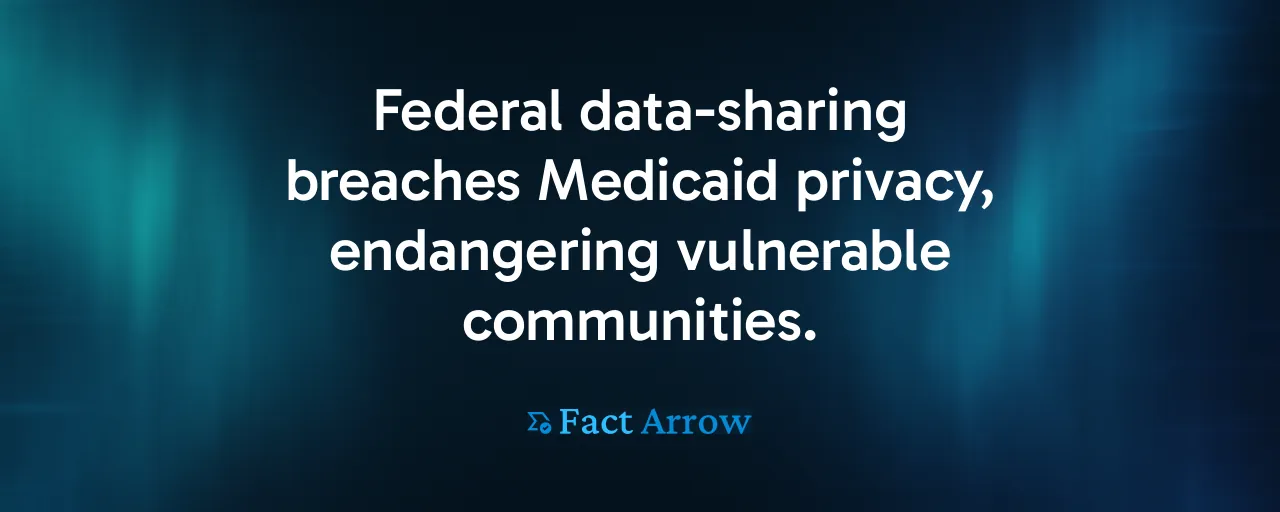A Violation of Trust
When you enroll in Medicaid, you expect your personal details to remain confidential. You rely on the system to safeguard your health, yet it now exposes your name and address to immigration authorities. In June 2025, however, the U.S. Department of Health and Human Services (HHS) betrayed that trust by sharing sensitive Medicaid data with the Department of Homeland Security (DHS). The Associated Press revealed this alarming move, which endangers millions, particularly immigrants and mixed-status families in California.
Governor Gavin Newsom condemned the action as a dangerous misuse of personal information. His outrage resonates because this decision transforms a lifesaving health program into a weapon for deportation. The Trump administration's choice to prioritize immigration enforcement over privacy threatens the well-being of vulnerable people. How can anyone feel secure seeking emergency care when their data might lead to a knock from immigration agents?
California has built a reputation for protecting privacy and embracing inclusion. Through Medi-Cal, our state ensures that all residents, regardless of immigration status, can access emergency care. This commitment strengthens public health by fostering trust. Yet, the federal government's data-sharing undermines this foundation, creating fear that could prevent people from seeking care and harm entire communities.
The Real Harm of Data Misuse
This data-sharing policy targets the most vulnerable. Medicaid records, including names, addresses, and immigration status, cover millions of enrollees eligible for emergency care under federal law. By transferring this information to DHS, HHS enables immigration agents to pursue people who sought medical help during crises. Such actions clash with the Privacy Act of 1974, which restricts personal data use to its intended purpose.
The fallout is already evident. A 2025 Physicians for Human Rights survey reported that fear of enforcement has caused delayed care and worse health outcomes. Community health centers note significant drops in patient visits since ICE gained access to hospitals. When fear keeps people from seeking care, untreated conditions worsen, and preventable diseases spread, creating a public health crisis that affects everyone.
Immigrant rights advocates, including the ACLU, highlight broader consequences. If people avoid Medicaid out of fear, participation in other programs, like tax filing, may decline. The Electronic Frontier Foundation projects that a similar IRS-ICE data-sharing agreement could cost the Treasury $313 billion over ten years due to reduced compliance. This policy destabilizes communities and weakens our economy, failing to save money.
California's Stand for Privacy
California refuses to accept this betrayal. Anchored by the California Constitution and the Information Practices Act of 1977, our state upholds robust privacy protections. Governor Newsom has vowed to pursue every legal option to safeguard residents' data and security. This resistance builds on California's history of challenging federal overreach, from sanctuary policies to protecting DMV records.
Legal experts argue that the HHS data transfer violates the Social Security Act, which limits Medicaid data to program administration. Leaked CMS emails from June 2025 reveal internal warnings from career officials that using health data for deportations is unlawful. Despite these concerns, political appointees proceeded, driven by an executive order favoring enforcement over ethics. How can we trust a system that dismisses its own experts?
Other states, including Illinois and Washington, share California's concerns, recognizing that this policy threatens public health nationwide. If states reduce data-sharing with CMS to protect residents, the Medicaid system could weaken, leaving millions without care. This federal action harms immigrants and risks unraveling a critical safety net for all.
Defending Our Shared Values
Some, like former ICE official John Fabbricatore, claim data-sharing saves taxpayer money and enforces immigration laws. They argue it prevents fraud and ensures security. Yet, these justifications crumble under examination. Using health data for deportations spreads fear, worsens health outcomes, and erodes trust in institutions, failing to strengthen communities. The true cost lies in untreated illnesses and fractured families.
California's leaders are right to demand accountability through legal challenges and stronger privacy laws. Nationally, we need legislation that enforces data firewalls, requires warrants for agency data transfers, and prioritizes access to care. Everyone deserves to seek medical help without fear—a principle that unites us beyond politics.
This struggle defines our identity. We face a choice: allow fear to divide us or champion trust, compassion, and justice. Governor Newsom's leadership sets the tone, but we must all act to protect the values that make California, and our nation, resilient.
